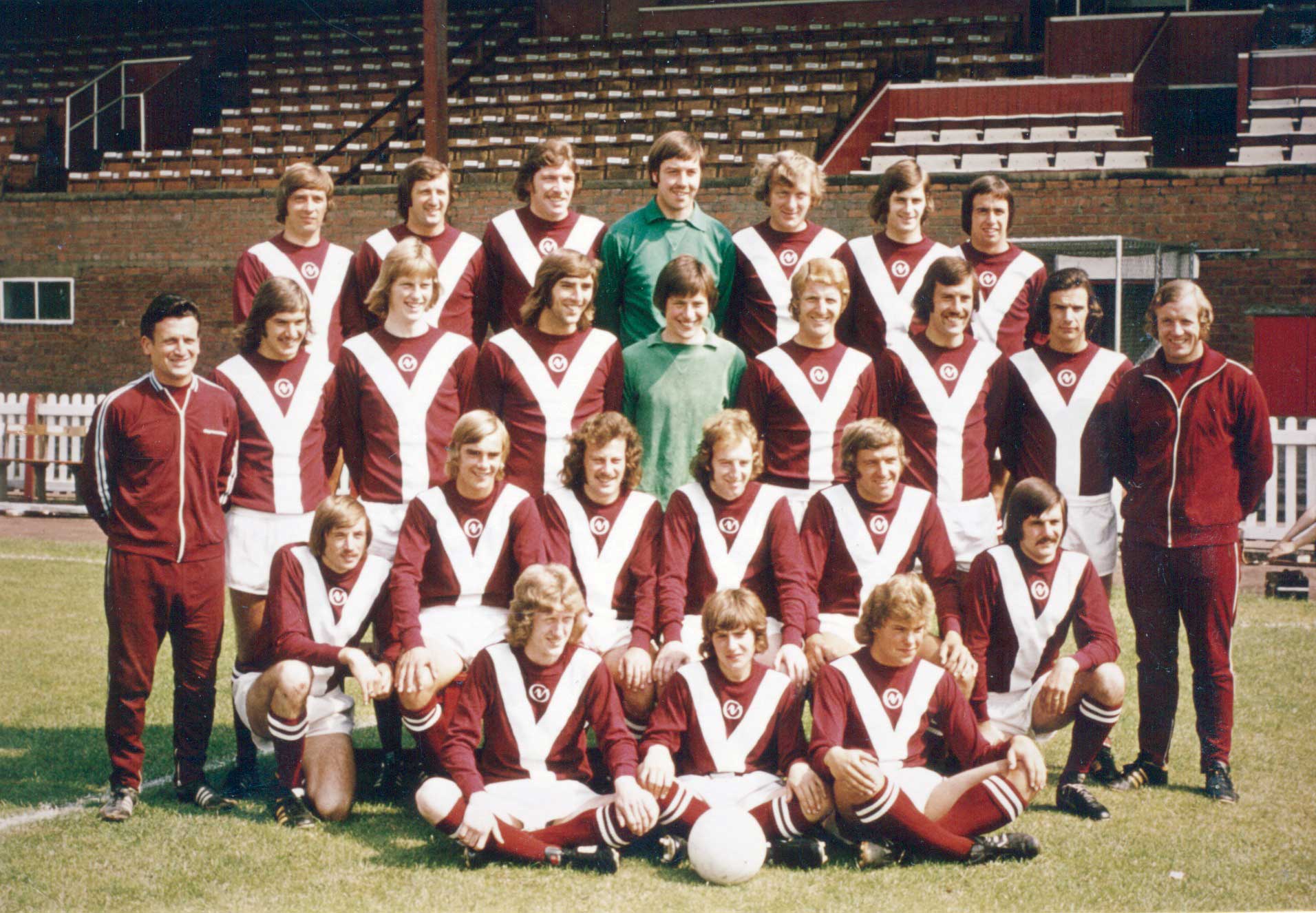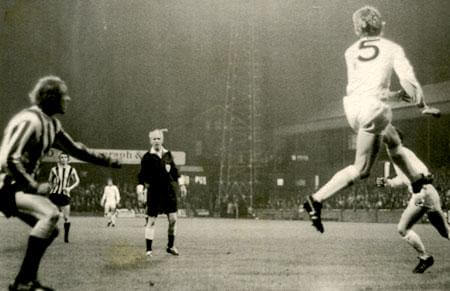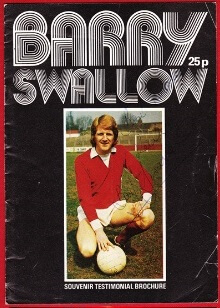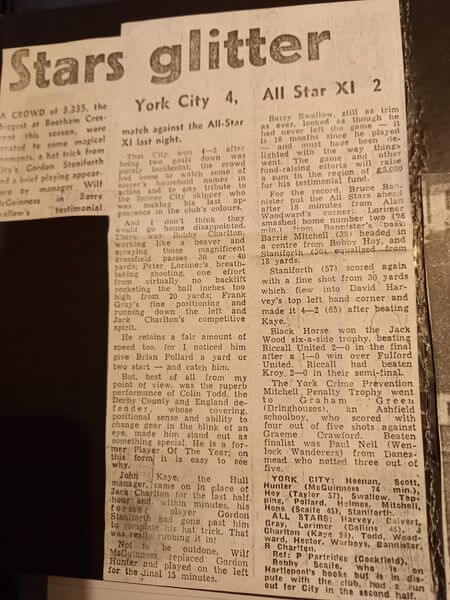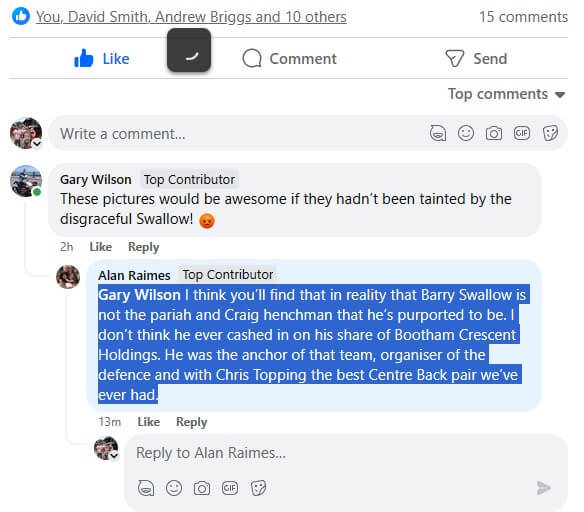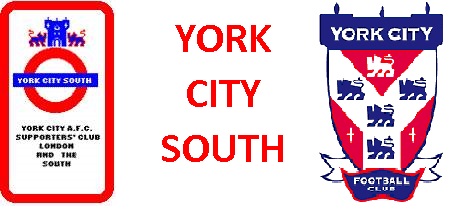

Barry Swallow
Swallow played for his hometown club Doncaster and later Crewe, Barnsley and Bradford City before joining City in October 1969 for a £3,000 fee. He was to make 312 appearances for City scoring 27 goals.
Signed by Tom Johnston, Barry Swallow was a near ever present in his 6 full seasons with City. His playing days are best remembered for captaining City to 2 promotion campaigns in 1970/1 and 1973/4 as Tom Johnston’s City side climbed 2 divisions.
As a tough, no nonesense central defender, he was at the heart of City's defence that equalled a Football League record when going 11 games without conceding a goal. The season ended with City's promotion to Division 2 (now The Championship), for the only time in City’s history.
Swallow announced his retirement in 1976 as City dropped out of Division 2 as he approached his 34th birthday.
For many years, Swallow and his wife owned the Clifton Bridge Hotel.
After his retirement, he became a City director, his responsibilities being focused on playing matters. He came to the fore as caretaker manager in 1977 (post Wilf McGuinness), 1982 (Kevin Randall), 1987 (Denis Smith), 1988 (Bobby Saxton) and 1991 (John Bird). Once each occasion, he stabilised the side and had some encouraging results.
Once turned down for the job, it makes you wonder what might have been if he’d been appointed City’s permanent manager. Looking in his book, "The Tale Of Two Great Cities", Chris Jones likened Swallow to Malcom Allison, "a very experienced performer who was a great motivator with similar characteristics to Malcolm Allison, he could lead by example but also get a little more out of the players in the team by his confidence and slightly arrogant and aggressive attitude".
In September 1977, Swallow enjoyed a testimonial when a City XI beat an All Stars side by 4-2. Opposition players were largely Yorkshire based and lead by Billy Bremner, including Jack & Bobby Charlton, David Harvey, Terry Cooper, Eddie Gray, Mick Jones, Paul Reaney, Paul Madeley, Peter Lorimer, Bobby Collins, Alan Woodward, Kevin Hector, Colin Todd, Alan Hinton, Cliff Calvert plus the former Bristol Rovers strike force of Warboys & Bannister. There was a special testimonial programme (20pp / 25p / A5) which was first full colour City programme. City won 4-2 thanks to a Gordon Staniforth hat trick (attendance 3,335).
On a personal note when the Shipton Street Roof Appeal was launched, Swallow served as a committee member who was always willing to help the cause.
In October 1998, The Football League named him as City's Local Hero and in 2000 he was named City's Player of the Millennium. Earlier, in 1974, he had been voted into the PFA Division 3 team of the season (alongside teammate Barry Lyons).
However, his reputation was sullied when chairman Douglas Craig, having split the ground from the football club,
sold the ground. As a director and shareholder, albeit a minority shareholder, it was reported that Swallow stood to make £172,661 (pre tax) from the sale. Read More. However, on March 1st 2024, Alan Raimes reported on Facebook that "I think you’ll find that in reality that Barry Swallow is not the pariah and Craig henchman that he’s purported to be. I don’t think he ever cashed in on his share of Bootham Crescent Holdings". This understanding was confirmed by Mike Brown shortly after Craig's death on May 10, 2025.
Many years later, having spoken to some of this teammates, it appears that they still hold Barry Swallow in high regard.
Trivia: From a footballing family, Swallow's dad, also played for Doncaster and he featured in what is regarded as football's longest ever game, an FA Cup replay at Stockport on 30 March 1946 when the clubs agreed to play “golden goal” to decide the winner. The game continued after the standard 30 minutes of extra time and was only abandoned at 7:03 pm (after 203 minutes of play when it was pitch black). Stockport’s side included Phil Burrows’ dad.
